AFLW
From the draft to homelessness
This is not meant to be an Australian Idol-style sob story.
This is simply an insight into where I’ve come from, where I am now, and to give an understanding of why being involved in sport is so important to me and so many other trans people.
As a male, in the immediate months prior to my transition, I was a member of the Australian handball team that attempted to qualify for the 2016 Rio Olympics. Prior to that I’d competed in Kosovo, New Zealand, Australia and Spain in various tournaments, including the 2013 World Championships.
I’d been part of this team in some way shape or form for a bit over five years. From the first training camp I attended in 2010, to debuting in 2012 right up until the last minute of my final match with the team against Oman, everything I did in my life was designed to get the absolute best out of myself as a player and contribute as much as I could to the team.
To walk away from that was a big decision.
Except it wasn’t.

MY BIGGEST MISTAKE
To say it didn’t play on my mind would be a lie. I wasn’t ready to stop playing but, like so many other things, handball was going to be an inevitable casualty if I was to take the steps I needed to survive or function as a person.
It was one of the things that made the decision to transition so much harder. I’d gone through periods where I thought I could put it off a few years until I was ready to retire. Maybe, I hoped, I could find a way to make it work.
Ultimately, it got to a point where there was no choice left to make. I simply couldn’t do it anymore – all the sleepless nights, the feelings of utter sadness and despair at seeing girls do things that were totally normal for women but that I couldn’t do.
I was hiding so many things, hiding who I was so I could just meet the expectations people had of who I should’ve been, not who I was.
I think that’s why I was always so drawn to sport. In our society, at least, it’s the most masculine thing there is. It’s the reason I was constantly in the gym, lifting weights far more than I needed to and getting as big as I did. I was trying to be the person people wanted me to be.
It wasn’t a conscious thing but, on a subconscious level, I think it was certainly part of the act.
Even simple things weighed upon me. In handball, for instance, we will often share a court for training. It hurt not being able to go with the girls on their half of the court when the men’s team was using the other. I can’t describe how much pain seemingly tiny things caused.
That I made the decision to transition and told my Mum – via Facebook, it could have been done better – while in the Middle East on a handball trip only solidified in my mind that it was the right thing to do.
I’d been agonising over how and when to do it for months, never finding an answer. I’d been discussing all the different elements with my best friend: from how to tell Mum, to how I would transition, to the excitement of getting my hormone medication, to finding clothes, to just how much I needed and wanted to transition.
She helped me through everything. Without her there’s no way I could have done it. But telling my Mum was the one thing even not even she could help with. I could never work out how to do it.
Ultimately, it got to a point where there was no choice left to make. I simply couldn’t do it anymore – all the sleepless nights, the feelings of utter sadness and despair at seeing girls do things that were totally normal for women but that I couldn’t do.
So when it just hit me – on the roof of a pool in the Middle East at an event where we could possibly qualify for the Olympic Games – I just did it. Because I really couldn’t have given two shits about anything else.
I couldn’t think about anything else, not even during matches and training. I absolutely love playing for Australia. It’s like nothing else and I’ve never worked harder for anything. So when even that became unbearable, I knew the time had come.
I couldn’t fight it any longer. I’d got through to Qatar by doing whatever I could to make myself feel more comfortable, more feminine and more myself at home. But I couldn’t do that while we were on tour. It was just too much.
I still remember the last two games we played in that tournament so vividly, knowing that it may well be the last time I would ever get to play the game I love and trying to take it all in.
We beat Uzbekistan before losing to Oman in what would be my final game with the men’s national team. I remember looking around the stadium, taking in the sights of simple things like the scoreboard slightly to the right of the goals, the colour of the light blue floor and watching my team mates walk off ahead of me.
I was the last to leave the court after the game against Oman and I remember thinking how glad I was we’d played that final game in our first-choice strip of green-and-gold, rather than our clash strip which was all green. There was something special about that green-and-gold combination. It ties you to every national team in every sport that comes before you. People instantly know when they see it that they’re watching Australia play.
LIKE I WASN’T THERE
I’d fractured my eye socket against Iraq a few games earlier but I really didn’t care. Not about the pain, anyway.
I’d played with breaks before but the terrifying thing for me was, while I was still able to fly home with the fracture the way it was, if I made it worse in those last few games I would have been stuck in Qatar for a few more weeks.
The hormone medication was in the glovebox of my car and I was already desperately wishing to be home so I could take it. An extra few weeks would have been agony.
In hindsight, the biggest mistake I made up to this point – and I made a lot of them after – was not beginning my transition six months earlier.
We’d just returned from a trip in Kosovo and I was starting to expand the number of people I was telling that I was trans. That’s when I should’ve begun my hormone treatment. But being trans can be so complex in the way you have to deal with it. As I said before, I didn’t know how to tell my Mum, and I didn’t want to let the boys down by not being in Qatar at the end of the year.
We were already going to struggle to send a full-strength team due to injuries and the financial cost of going. Losing one more player would have set us back so much further than it usually would have. And I love the game.
But by the time we got to Qatar the stress of not doing what I needed to had taken its toll. And, while I’d been fairly calm in the past, I was too quick to anger, and it affected the team in ways I shouldn’t have let happen.
I was snapping at everything in Qatar. Twice in that tournament I got in some fairly heated arguments with teammates during games, once on the court and once on the bench. I hugely regret them.
In handball, two-minute suspensions are fairly common for minor infringements – essentially a player is sent off for two minutes and your team plays one player down for that time. I subbed off the court onto the bench and something had obviously happened, I don’t remember what, and got one of our players sent off as I kicked a drink bottle into the advertising boards behind the bench.
I was amazed no one in Qatar at the time or watching back home asked me what was going on, if I was alright. I sort of wish they did although I’m not sure how much I would have said.
A few people from home had commented that in TV close ups before the game and in the huddle that I just looked completely out of it, like I wasn’t there.

A QUESTION OF FAIRNESS
People often ask me why trans people should be allowed to play sport at all, whether it is unfair to those they’re competing against.
I’m not going to go anywhere near that argument here, except to say that people generally only view this issue through the lens of larger male-to-female transgender people in sports where size would be considered an advantage.
It’s a very narrow view. I am one of those people who is naturally big, I’m 189cm and roughly 100 kg and, as a result, I would make an awful gymnast, marathon runner or diver. Would people debate as passionately the right to compete of someone transitioning from female-to-male, who might have a smaller frame and be good at those disciplines?
What is certain is that whether it is male-to-female or female-to-male, neither person would come in and be naturally good at a particular sport if they’d never played it before or didn’t understand the intricacies and nuances of that specific game.
And as for the effect the hormone treatment has, it’s massive. I lost 20 kg in the first month I was on hormone treatment simply due to the lack of testosterone.
This obviously slowed significantly because the body doesn’t want to lose muscle, but the effects on my central nervous system and hemoglobin levels, things people can’t see, continue at a much faster rate.
The central nervous system plays a huge role in strength and force production, while hemoglobin impacts your endurance capabilities. What this means is that essentially the external doesn’t necessarily match the internal. As the saying goes, don’t judge a book by its cover.
And as for the effect the hormone treatment has, it’s massive. I lost 20 kg in the first month I was on hormone treatment simply due to the lack of testosterone.
Really, the question of whether trans people should be allowed to play sport shouldn’t need asking.
I mean, why should people who aren’t trans be allowed to play sport?
That’s about how much sense that question makes.
Sport should be available to everyone. And while I agree there need to be safeguards in place to ensure fair competition, it needs to be acknowledged that sport provides much more than just a run on a footy field every Saturday or on a basketball or netball court on a weeknight.
I’m going to use myself as an example of as to why that’s the case.
MENTAL ILLNESS & HOMELESSNESS
Fast forward to September 2017, and my life had done a full 180. A rollercoaster. A nightmare at times.
The changes have been that stark and unpredictable. This is something that is not unique to me. Ask anyone who is trans about their experience and you will get a fairly similar response.
In my case, not having sport certainly played a part in my inability to cope. It also provided a way back.
It’s hard to know where to start. Between November 2016 and March 2017 I found myself in hospital near enough to 20 times because of mental health issues. That’s basically once a week.
I spent a month from mid-March to mid-April in a mental health rehab facility in Sydney. I’ve been homeless since the middle of 2017 as well. Over the last few months I’ve lived in Canberra, Wodonga and Port Augusta, mostly, although there has also been a large chunk of time spent in Melbourne as well. And Sydney’s featured occasionally, too.
In reality, none of sport, mental illness or homelessness are a good place to start, but they’re all a big part of the past 12 months. I joked before the draft that I may be the first ever homeless person to be drafted to an AFL club, but obviously that never eventuated.
Between November 2016 and March 2017 I found myself in hospital near enough to 20 times because of mental health issues. That’s basically once a week.
Truth be told, all through 2016 I suffered from massive mental health issues, which had always been there to a degree but went from zero-to-100 pretty quickly over those 12 months.
It’s hard to say what one thing triggered it, but the stress of transitioning, beginning hormone treatment and then not being able to play sport, albeit temporarily, all played a part – if not equal.
As far as sport goes I was still involved in coaching. But as anyone who has both played and coached with tell you, it’s just not the same. The routine that comes with playing, the day-to-day preparation you undertake on your own, I lost all of that. It was hard to know what to do.
But it was more than just that. I’ve never been one to make friends easily, and being part of a team provided that feeling of being part of something, like you’re included and involved. It was hard to not be acutely aware that although I was there I wasn’t really part of the group – and even harder to ignore the loneliness that followed as a result.

THE REAL IMPORTANCE OF SPORT
Footy played a huge part in saving me.
I started playing with the Ainslie Football Club in Canberra and it was a fresh start. I was involved with a new group of some of the most amazing girls you will ever meet and rediscovered that week-in-week-out routine of training and playing that I so sorely needed and missed.
It took a long time to get properly better, but football set me on the right path. It was two hours each week where I could just forget about everything that was going on. My mind became empty and I could just be in the moment.
And I felt needed. As the season went on and I played some OK games, I felt like I was valued among a group of people for the first time in a long time.
That’s why I wasn’t as upset as people thought I might be when the AFL knocked back my draft nomination. I can still play with my mates so life’s actually pretty good, right?
That’s not to say all mental health issues will be solved by playing sport alone.
It took a long time to get properly better, but football set me on the right path. It was two hours each week where I could just forget about everything that was going on. My mind became empty and I could just be in the moment.
The mental health system needs a serious overhaul, especially in the way trans people are treated. Not being referred to as he and him by the staff would be a good start.
This was illustrated during my last admission to Canberra hospital in March, after a few days I was told I was being discharged despite not being able to access any treatment.
I knew I wasn’t OK but from the moment I was told I was being discharged I had 15 minutes to leave before security was called. I asked for more time to simply pack my things and make a phone call, but apparently that wasn’t OK.
Instead, the doctor came in, whom I’d barely spoken to while I was there, and told me if I thought I needed more treatment she would withhold my hormone medication until I left and make her opinion known to my GP that it should not be prescribed. I was ‘disobedient’, apparently.
Just let that sink in for a moment. A doctor, a registered, trained doctor, blackmailing a patient to leave a mental health facility when they don’t believe they are safe to go home by withholding medication.
Imagine doing that to a diabetic, or someone with heart disease. Even writing about it now, it’s hard to believe or comprehend that it happened.
While it is different to the type of medication I listed before, it’s certainly not OK. It’s hard to properly describe how much value a transgender person places on that medication. For it to be used in that way against you … it’s just indescribable.

TAKING THE LEAD
Transgender people are still by and large treated pretty harshly by society, largely because we aren’t understood.
It wasn’t all that long ago that the only time you would see a trans person in public was on an episode of Jerry Springer, which hardly painted any of its guests in a positive light.
This is where I believe sport needs to step in to lead the change.
Just looking at statistics. There are hundreds, if not thousands, of transgender people involved in sport who feel they can’t transition because of how they fear the reaction will be. Conversely, there are huge numbers of trans people who want to play sport but don’t for the same reason.
As soon as the bigger sports in particular come out and make sport more inclusive for gender diverse people – and people feel comfortable to be themselves – they will be responsible for removing so much pain, anger and depression from those people lives. And save lives.
I’ve recently set up a business to do just that – Transform Coaching and Speaking – to help companies and sporting organisations improve their diversity policies and provide education about diversity. Hopefully, this will go some way to making a difference.
I have to say that, by and large, those involved in handball have been amazing with my transition. The handball community knew me before, so they haven’t just had to adjust to me becoming Hannah socially. And the girls – who are now playing with someone they used to watch play with the men’s team – have been incredible.
I’ve recently started training again with the women’s national team, I took a break at the start of the year to focus on getting better, and it’s like nothing’s changed.
I’m Hannah. I’m just one of the girls and their team mate. No one is caught up in the backstory.
We had a training camp the weekend that the 60 Minutes segment aired and I’d been in the news for a solid three weeks – and no one said a single thing. I wouldn’t have it any other way.
In my experience, the wider community mostly want to be as accepting as the girls I’ve played handball and football with.
In Australia, it is sport, not politicians, that need to lead the way. And it’s time sport did.
Monday, November 20, was International Transgender Day of Remembrance, a day set aside each year to remember the transgender people who have been murdered for simply being who they are.
More about: Mental health
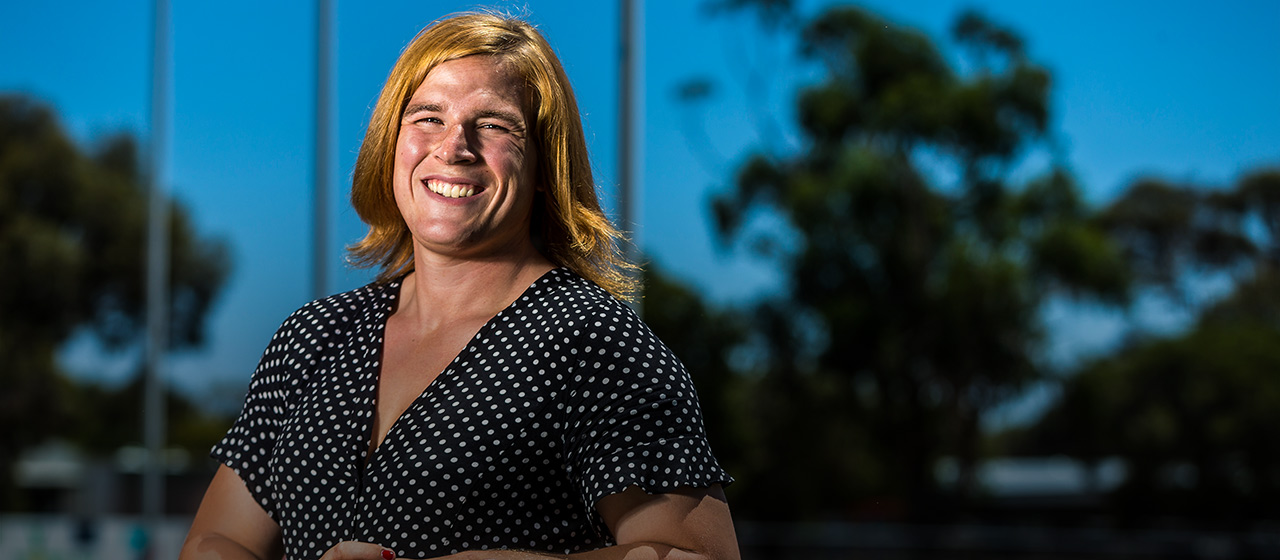
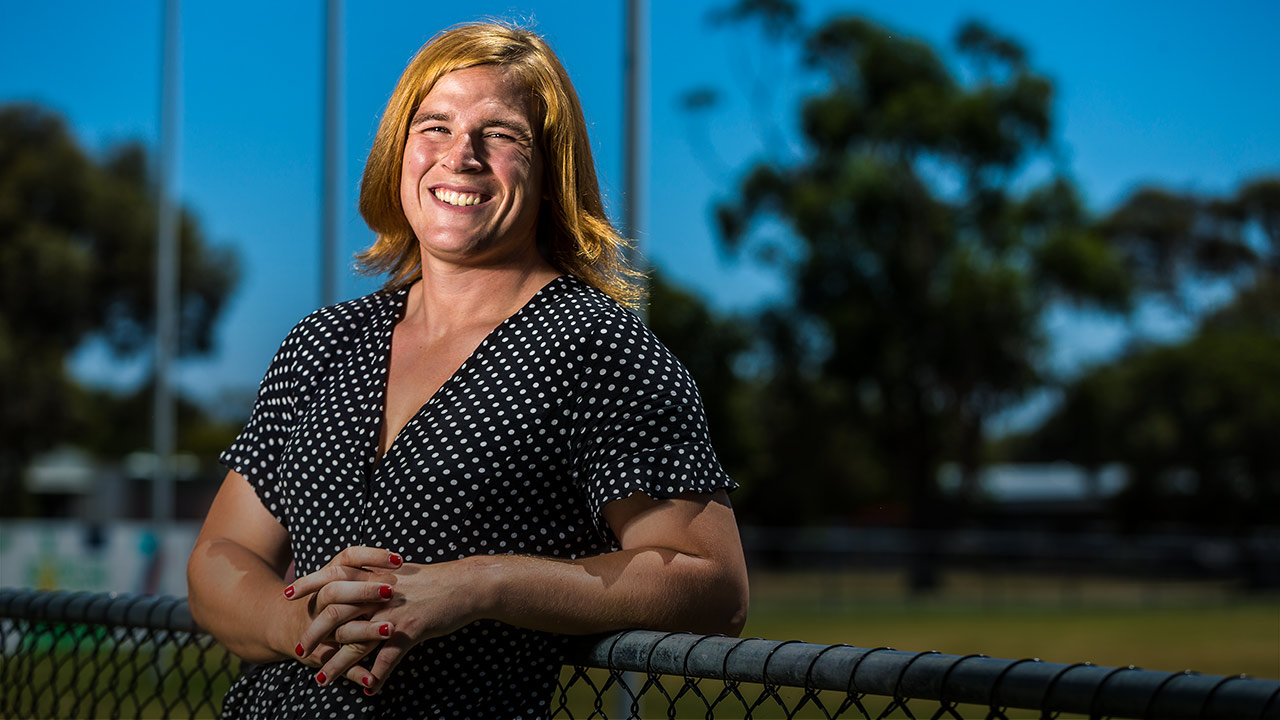
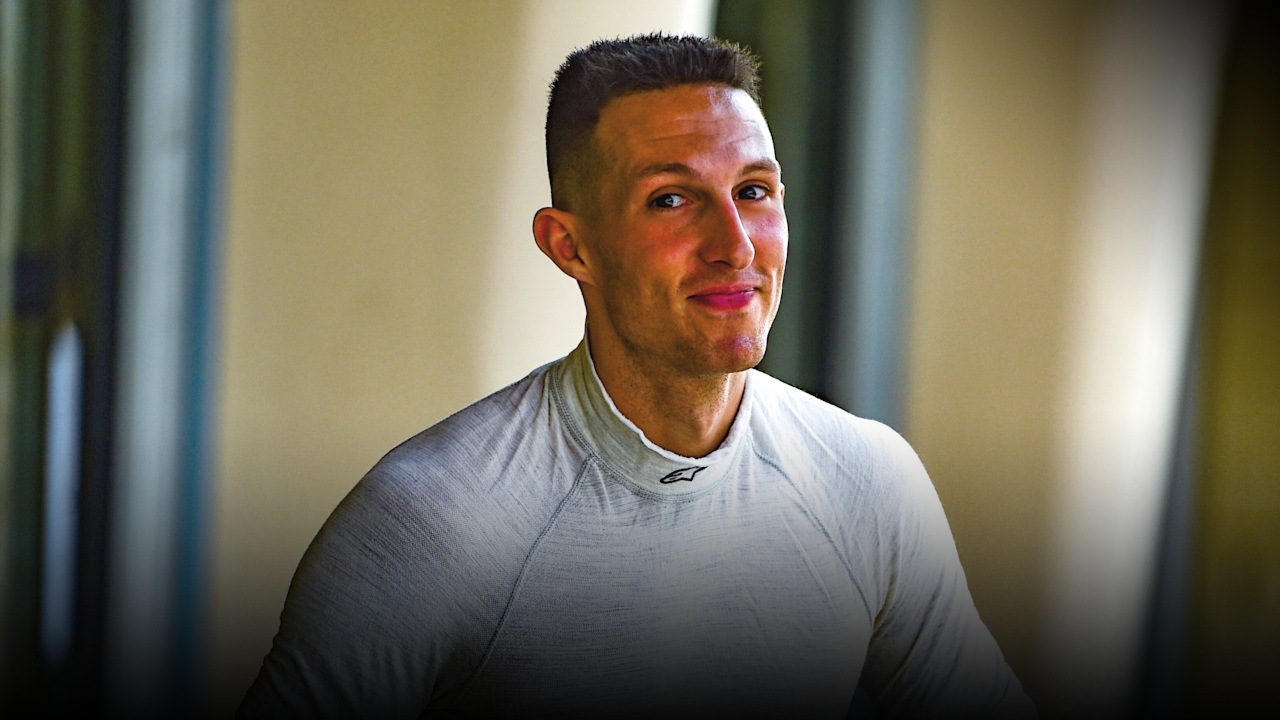
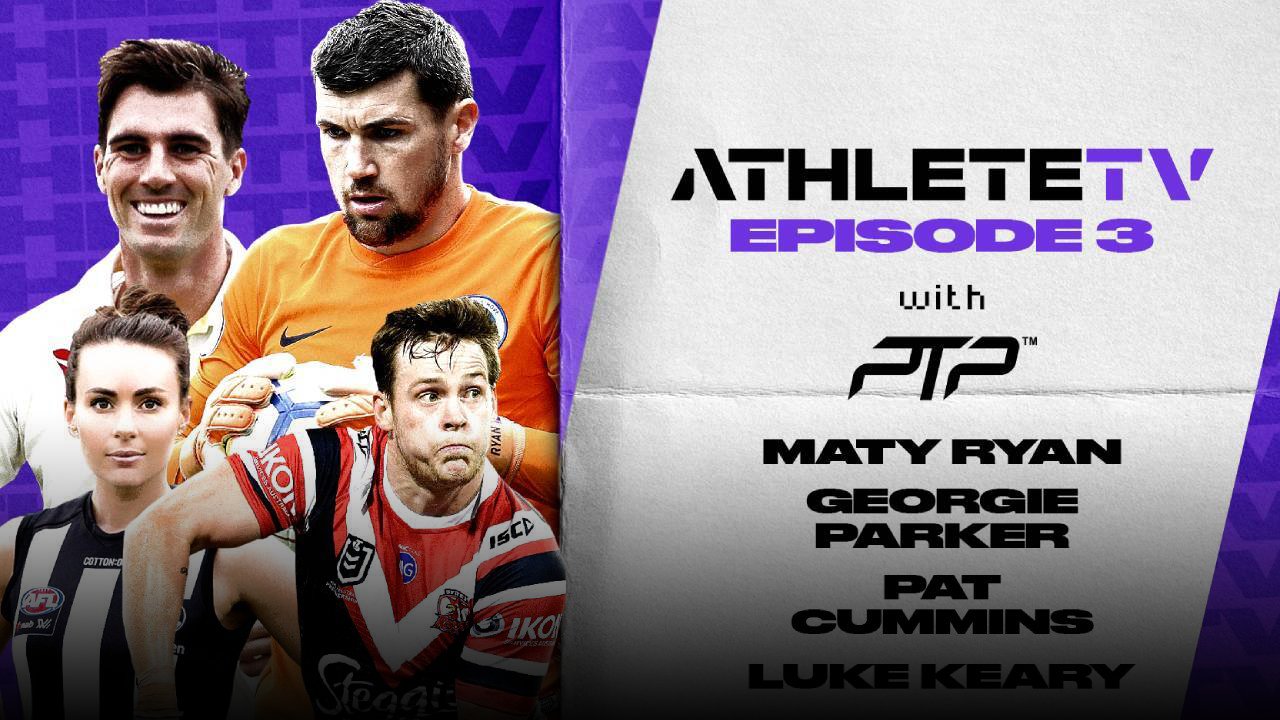
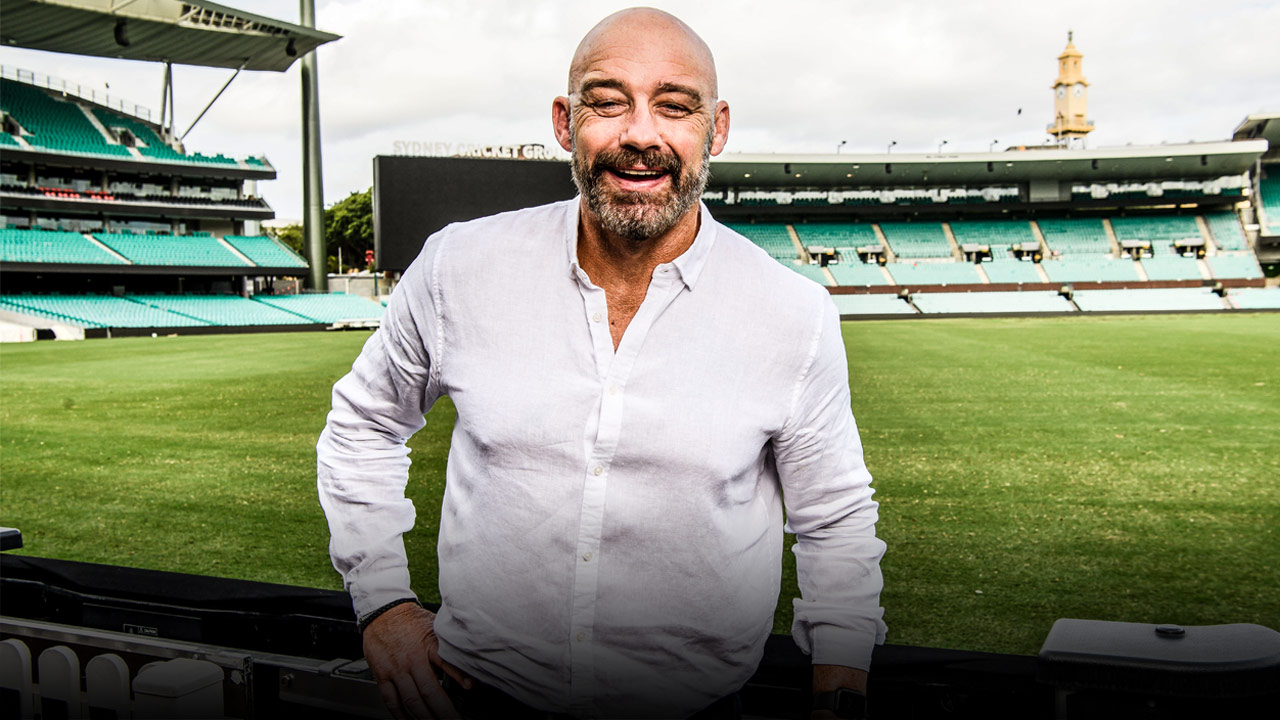
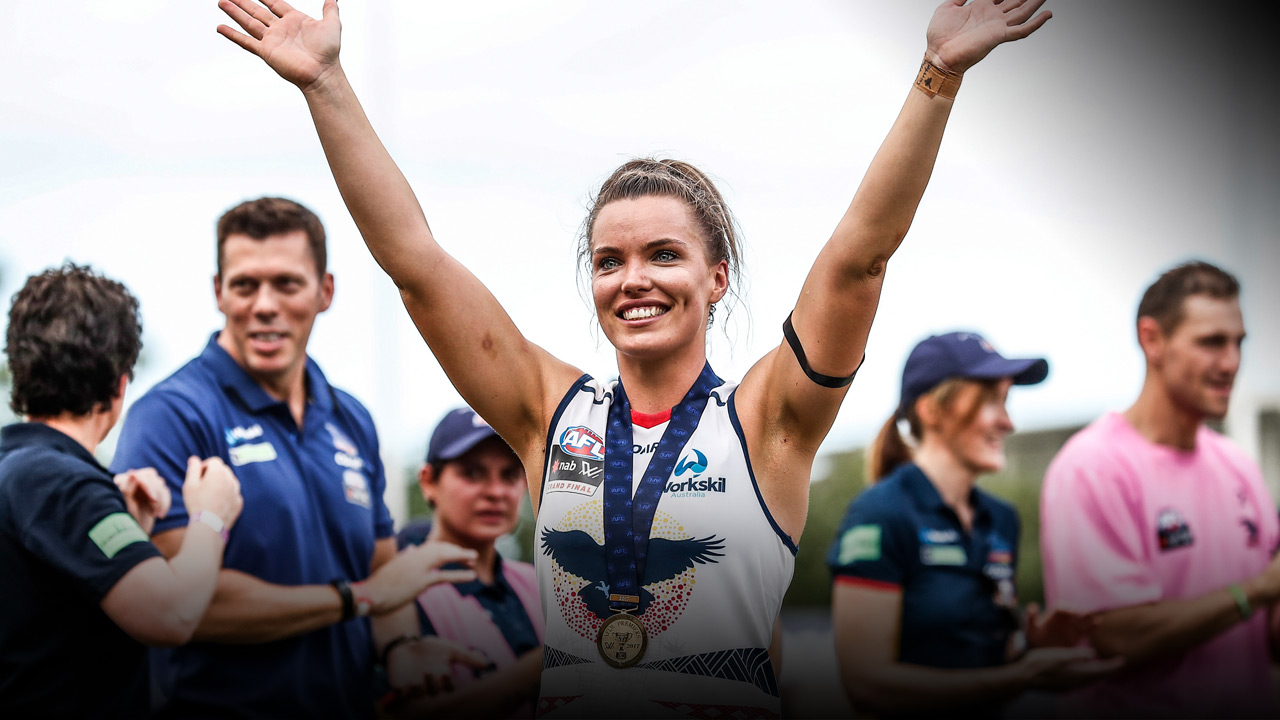
 Load More
Load More